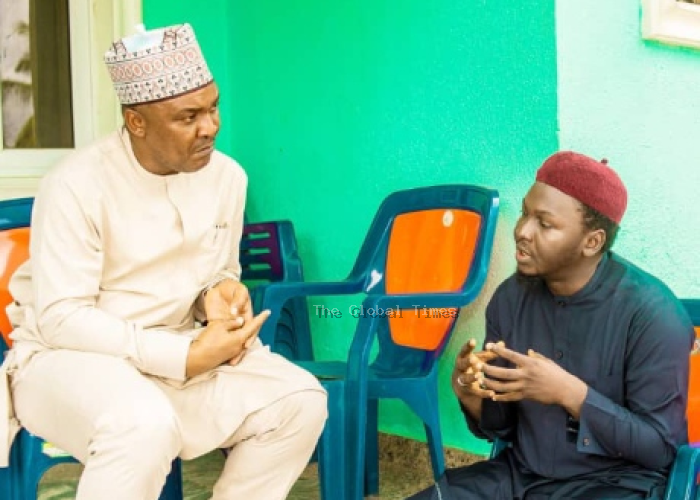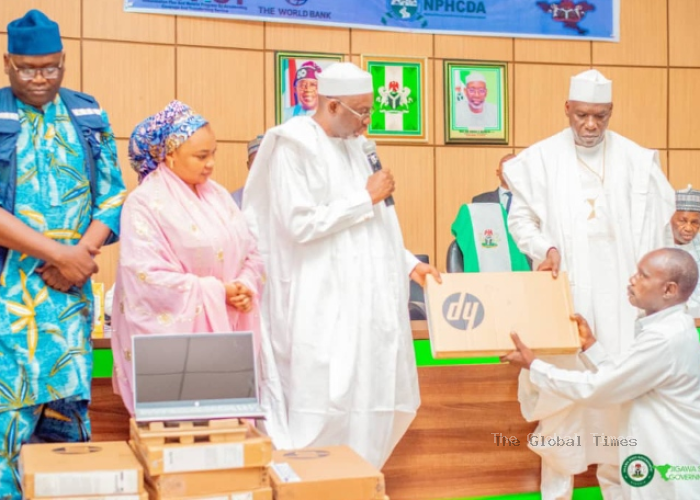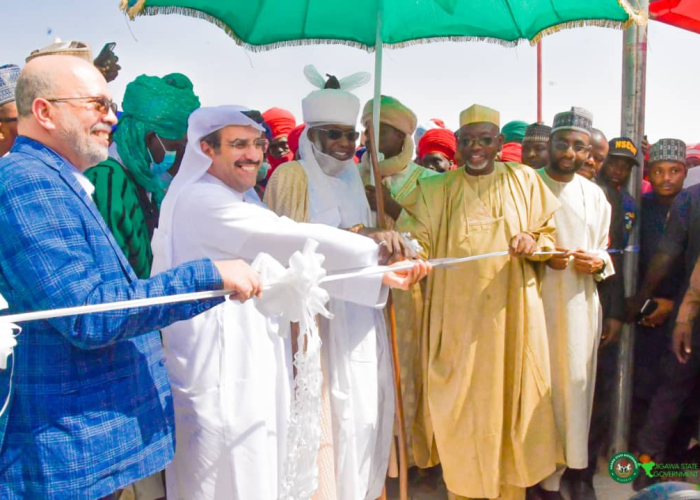
Sen Al-Makura: A man with the philosophy of restlessness in search of perfection
 Sen Al-Makura
Sen Al-Makura
From ESV Saliu Abdullahi Osuko, Giza
Senator Umar Tanko Almakura presents an interesting subject for the behavioural scientist. His restlessness in getting things done should necessitate our admiration and curiosity in terms of the sequencing of activities that form the crux of his governance style.
Recounting the deeds of Dr. Almakura would seem trite and dry under the compelling reason of the sheer numbers of projects being executed in the length and breadth of Nasarawa State. Catching up with the projects of Senator Almakura is breathtaking endeavour in which effort one will be left in bewilderment and sheer perplexity.
What is inspiring and worthy of note however, are the distribution of the projects and their location in out-of the way enclaves that have not tasted the so-called dividends of democracy in all these years.
The people of Nasarawa State experienced his presence and witnessed the effects of his restlessness in the numbers of projects that were delivered to their localities. The fact that a huge sum went in for vocational and skills acquisition center in Lafia was commissioned by then Governor Almakura is a compelling news on its own. But locating such a project in the state’s capital represents the new mood in the state about inclusion, recognition, empowerment and the localisation of development.
We can count our blessings only when the narrative has an emphatic relationship to our collective or individual wellbeing. What is happening in Nasarawa State today is of dual nature – the empowerment of communities and the upliftment of the individual from the doldrums of despair and hopeless on which verge our state was tittering for over a decade. Almakura's foot print.
Senator Almakura’s intrepidity is uniquely factored on his boldness and daring that have propelled him to surmount every difficulty and overcome every obstacle that have been placed before his ambitions. With the meagre resources at his disposal, and the critical deficit in terms of the essential capacity of the state’s institutions, he has succeeded in bringing about rapid and dramatic transformation of Nasarawa State in just 8 years.
Not one given to beating his own drums or blowing his own trumpet, Almakura is rarely seen taking credits for his numerous achievements. Rather, he sees things from the providential angle and remains contented in the knowledge of rendering service where such idealistic traits have virtually disappeared from our discourses and consciousness.
There is still hope for Nigeria and Africa with discerning and restless leaders like Dr. Almakura around. We need not go far from Nasarawa or Nigeria for that matter, to seek for problem solving leaders. We have them right here amidst us if we sincerely care to look for them. In Dr. Almakura we can affirm that we have found one who is dear to us and close to our expectations.
It is hoped that this article will spark off a debate on leadership in Nigeria and Africa and the recognition that even at the sub-national levels, leadership and the adroit
exercise of power are indispensable elements in the progress of our societies. Indeed, it is at the sub-national levels that we need dynamism, daring, boldness and intrepidity as the compelling drivers of power and leadership, so that we can dispense with the sensational and often futile attachment to the chores of leadership at the national level.
Getting things done right at the states level will necessarily translate into the composite or organic factors of national development. Nasarawa State under the restless spirit of Senator Umar Tanko Almakura perhaps can be reserved as a model of action driven by purpose, or as a subject of peer review among state governors for emulation as best practice to be imbued with the sacrosanct cloak of affirmation as well as approbation.
“He Who Dares Wins!”, is the motto of the British elite Special Air Service (SAS). Boldness and daring are assets rarely deployed in government on account of the furtive nature of most political leaders, and their tentative ways of doing things. But boldness and daring are needed in times of aggravated challenges and crisis, such as we found ourselves in, in Nasarawa State over several years now.
To be timid or tepid in the face of such enormous challenges is not an option for a leader whose sole purpose is to face circumstances as they unfold before him, and seize the moment to extricate his people from their existential difficulties.
Studying leaders who are active and restless from the behavioural perspective is therefore, a rewarding and very critical undertaking. Actions are the manifestations of intentions that also convey to the observer a sense of mission being pursued.
Addiction can also manifest itself in many behavioural traits. Most are destructive but some can be beneficial. Addiction to work is among such beneficial traits that compel attention from us onlookers, who are quick to judge our leaders from our localised comfort zones.









